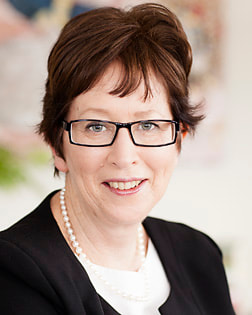|
Perfection-striving is a bottomless pit. There is no end. You continually strive to be better, yet the goal posts keep moving. Not only does perfection elude you, it pushes you further away from feeling good enough.
We often see new mums who with the best of intentions for their babies and families, are striving to be ‘perfect’ mothers – to parent in the ‘perfect’ way. The reason they are in therapy, is often because this endless pit of striving sets them up to fail, and this perceived failure feels intolerable. There is typically a lifetime of layers beneath the surface of this striving, which we explore with our clients in order to make sense of the past messages they may have integrated, and their resulting automated drives. The key is to de-automate, understand the fruitless endeavour of perfectionism, and change perfectionistic behaviour. Why? Striving for perfection can seriously limit our capacity to enjoy life. Perfection-striving is often associated with all-or-nothing or black-and-white thinking. For example, the mum who won’t go to mother’s group if she is going to be late, misses out on the building of relationships with other mums (who are often late themselves). The mum who won’t exercise if she can’t exercise three times per week, misses out on the benefits of some exercise and a little time-out. The mum who won’t invite people over unless she gets the time to make the house look immaculate, misses out on the fun and spontaneity of having other new mums and babies around for her own and her baby’s social well-being. The mum who won’t let her partner settle the baby because he/she won’t do it like she does, misses out on her partner’s support and her partner's growing bond with the baby. The bottom line is that there is no one way, and there is no right way. When your hard and fast rules about how things should be, get in the way of the things that give your life meaning (i.e. the things that you really value) ask yourself if there is a middle ground? The middle ground is a place where we strive for being ‘good-enough’ mothers. Perfectionists usually see this term “good enough” as meaning mediocre. However, ‘good-enough’ means good enough. For example, getting to mothers group late is better than not going at all. It can be a good laugh and a supportive environment. Exercising whenever possible (despite wishing to achieve three exercise sessions per week) is better than nothing, and is likely to become easier to achieve over time. Inviting friends over, even if the house is untidy, shows them that you are human after all (very comforting for most people), and demonstrates that you value friendships more than your domestic high standards. Letting your partner settle the baby even if he/she does it differently to you, knowing that this is their chance to discover what works, and to establish a good bond. The middle ground is a much kinder place – a place of acceptance, and openness to experience. Try it. You’ll see. You might even find that not only can you be a 'good-enough' mum, you can be a great mum! If these tips are not enough, and your need for perfection is causing you distress, it may be worthwhile to seek help. Written by Dr Renée Miller Principal Perinatal Clinical Psychologist Founder Antenatal & Postnatal Psychology Network Co-founder The Perinatal Loss Centre We left the paediatrician's office feeling shocked, gutted, and numb. We were told that our child's delayed development could be an indication of Autism Spectrum Disorder. We were barraged with names and details of specialists who could continue assessing Henry and provide therapeutic support. What? Autism? In the days that followed we watched Henry's every move, his every expression, the way he played, ate, and interacted. The way we saw our beautiful boy had changed since the excruciating hour and a half we spent answering questions, completing questionnaires, and trawling through our memories of Henry's developmental milestones (or lack thereof). With each milestone he appeared to have 'failed', our hearts sank further and further. We were reassured about the services that could help Henry to learn some of the skills he would need in life - a life we now imagined playing out in the bleakest of ways. We began contacting the names of the practitioners we had been given. Dying inside that our boy was now going to be scrutinised, assessed, and labelled. Putting one foot in front of the other, we followed directions to implement assessment and support services for Henry. But who is there to support us? Who can help us to cope with the grief, the trauma, the rising panic? How do we parent our boy now? Who are we now? What does this mean for our other children? When a child is diagnosed with a developmental disorder such as Autism Spectrum Disorder, there are a multitude of services to support the child. But parents often feel out at sea themselves. Where do they turn to understand their role as parents? Who do they see to recalibrate their views and expectations of their child? How do they manage with the challenges their child brings to the family?  Dr Alison Wilby is a Clinical Psychologist who supports parents facing developmental concerns in their young children (under 8 years old). Alison understands the trauma, the profound disappointment, and the fear that parents can feel when they are told there is 'something wrong' with their child. Integrating over 20 years of working with new parents and young children (particularly where there are significant developmental challenges), and with a PhD on the role of parenting in early social emotional development, Alison is well placed to support parents traversing the multidisciplinary landscape of the Autism Spectrum. Alison is a warm and caring practitioner who helps parents understand how their child thinks and behaves within the challenges and strengths each child displays. Alison provides assessment and support for parents who are concerned about the development of their infant or child, and she provides tools to manage difficult behaviour while helping parents to gain clarity on the underlying causes. Alison has a particular interest in Autism Spectrum Disorder and anxiety disorders in early childhood, including young children with selective mutism. With her background in parent-infant settings, Alison works with children who have been affected by a parent’s mood disorder. In situations where mothers have been hospitalized, Alison supports children who are struggling with the distress of separation. Irrespective of the diagnosis a child might receive, Alison assists parents to build confidence in their parenting, working with couples to help them to determine optimal strategies for parenting their particular child. Alison's ultimate aim is to help parents to parent with love and acceptance of their child, and to see the unique capabilities that every individual child possesses. Alison is located in Melbourne’s south east (Caulfield North, Hampton and Glen Iris). Read more about Dr Alison Wilby here: https://www.antenatalandpostnatalpsychology.com.au/dr-alison-wilby Article written by Dr Renée Miller Principal Clinical Psychologist Antenatal & Postnatal Psychology Network Developing a comfortable and healthy relationship with our baby is perhaps the single most important role we can fulfil as a parent. Being with our babies in a relationship where we are present and attuned to their needs, helps them experience what it is like to feel safe and secure. This is the foundation babies need to develop positive feelings about themselves, thereby setting them up to optimise their full potential. As well, this first relationship with their parent serves as a blueprint for many future relationships in their lifetime. Feeling heard and understood and having emotional needs met helps individuals function productively in relationships. It it safe to say that every parent has the best intention for an unblemished relationship with their child, yet this does not always go to plan. We can hit bumps in the early weeks or months of being a parent leaving us feeling doubtful about this new relationship. We may feel anxious, lost, even frightened of this much anticipated new arrival. For many parents, there can be feelings of aloneness or emptiness - a contrast to the joy they may have expected. What can follow are feelings of guilt, even shame, for not enjoying the parenting journey, compounded by crippling thoughts of being a bad parent. So powerful can this state of mind be that parents describe feeling stuck or frozen - caught between their internal turmoil and desperate attempts to care for the baby they so love and cherish. Human beings are complex. Each of us carries a story about relationships, and it begins with the people we first formed them with – our parents. This very first relationship has significant impact on the way we view ourselves and our place in the world. We develop emotional and behavioural patterns from these relationships and they become a part of ‘who we are’. For example, we might find that we are sensitive to a certain look or a tone. A look or a tone that can seem harmless enough, yet is able to rouse an emotional response so powerful and strong within us. Why is that? It is possible that the look or tone is familiar to us somehow, triggering emotions associated with our very early experiences of being in relationship with significant adults when we ourselves were children. This unique experience does not live in our awareness; it is embedded deep within us. Sometimes these emotional reactions are positive - received like a warm blanket. Other times they are negative and we feel alone and vulnerable, unprotected, unheard or misunderstood. Either way, they are feeling memories arising from our early relationships. Because of the closeness of the parent-infant relationship, our babies’ behaviour can inadvertently trigger old unresolved dynamics from our early relationships. Some parents experience feelings of anxiety or dread when their baby signals a need for proximity and comfort through crying or unsettledness. Others experience sadness, alarm or a feeling of rejection when their baby crawls away from them to explore the environment. Even though we may reasonably acknowledge that babies lack the sophistication to deliberately upset us, the emotions stirred up in us are so strong that it’s easy to think they are doing just that. What is not available to us at the time, is the knowledge that our baby’s behaviour is merely triggering our own experiences of unmet needs from our childhood - our parents’ own struggle with providing comfort when we needed it, or their discomfort with supporting our need for autonomy and independence. Making sense of our childhood experiences helps us to be more open to seeing our babies’ needs as separate to our experiences. It might give us the space to feel at ease with our babies, attending to their needs and connecting with them in the way we intend. It frees us up to have the kind of relationship with them that reminds them that they are special to us and that we can support them with both their need for comfort and their curiosity for learning about the world around them. It is also important to remember that as much as we wish, we will never have the relationship running ‘right’ one hundred percent of the time. After all, experiencing pain and disappointment is part of the territory of being human. If we get it right enough of the time, we are doing a good enough job. Equally important to remember is that repairing the relationship with our child when we recognise we have missed the mark, is a powerful human gesture. Repairing and rebuilding teaches children important lessons of trust and hope. It gives them scope to be imperfect but still loved. Tips
This article was written by Psychologist, Kanthi Sayers from the Antenatal & Postnatal Psychology Network. Kanthi draws on the theoretical underpinnings of attachment theory and the teachings of Circle of Security. www.circleofsecurityinternational.com Reference Hoffman, K. Cooper, G., Powell, B. (2017). Raising a Secure Child: How Circle of Security Parenting can help you nurture your child’s attachment, emotional resilience, and freedom to explore. New York: The Guildford Press. www.antenatalandpostnatalpsychology.com.au www.facebook.com/antenatal.postnatal.psychology "I feel like I have no control over my life" "The 'to do' list never ends" "I can't seem to finish anything I start" "My toddler is ruling the roost" "I'm trying so hard to be a good parent but I'm worried that I'm not" "I'm exhausted" Parenthood is stressful. The responsibilities and demands of a baby, toddler (or both), the sleep deprivation, the loss of freedom, the loss of control, and the never-ending 'to do list' can be overwhelming and stress inducing. Not to mention the emotional investment in wanting to parent a child who will feel safe and secure in the world, with a high emotional intelligence and a resilience to facing life's challenges. It's a big gig! Some new parents seek help to manage postnatal depression and/or postnatal anxiety. However many new parents seek help simply to manage stress. Often motivated by wanting to be the best parents they can be, parents recognise when they are operating in a revved up state. Their sleep can be affected, and they may notice symptoms of irritability, being overly touchy or sensitive, snappy, and generally not being able to wind down. Parents often report that their stress is most apparent in their relationship with their spouse, and/or in an increasing impatience with their children. There is a vast literature and much media attention educating the public on postnatal depression and more recently, postnatal anxiety. However for parents who are stressed this focus on depression and anxiety can result in a hesitation towards help-seeking in the absence of a depressed mood or an anxiety disorder. Postnatal stress can cause significant upset in families, and evidence-based treatments for stress can bring about welcomed symptom relief. So what is the difference between depression, anxiety and stress? According to the authors and researchers of the Depression, Anxiety Stress Scales (Lovibond & Lovibond, 1995) depression, anxiety and stress can co-occur, however each state has its unique symptoms. Depression symptoms include feeling negative, down-hearted, gloomy, unmotivated, dispirited, and a loss of enjoyment in things once pleasurable. Anxiety includes physiological symptoms of panic, pounding heart, shakiness, fear of losing control, and apprehension. Stress includes nervousness, jumpiness, tension, getting easily upset or irritated, and difficulty relaxing. The Psychologists at the Antenatal & Postnatal Psychology Network (APPN) commonly use the Depression Anxiety Stress Scales (DASS-21) - a well validated screening tool that helps new parents to understand their particular symptoms. In our experience, new parents like to understand their symptoms using the DASS-21, and they find it useful to track their symptoms over time to see how they are progressing with therapy. Although scores on the DASS can delineate symptom severity and a measure of progress over time, clinical diagnoses (if relevant) require further assessment by the psychologist to ensure that appropriate treatment strategies are implemented in therapy. Treatment for stress typically involves a combination of Cognitive-Behavioural Therapy and Mindfulness based therapies. These approaches give parents tools for understanding how their thinking - expectations, appraisals and worry - contribute to their difficulties (thinking being a modifiable component in managing stress). In addition parents learn to manage their responses (physical and behavioural) in relation to life stressors and to their own fears. Practical strategies for managing daily routines can form part of the work, as well as sorting through family of origin dynamics that may underly one's problematic thinking and stress levels in the early parenting years. Learning how to wind down and relax is fundamental to this therapy for stressed new parents and parents of young children. Written by Dr Renée Miller Principal Clinical Psychologist Antenatal & Postnatal Psychology Network Social media is a quick and easy resource for busy new parents. The challenge is finding reputable sites that don't promote extreme (and often contradictory) parenting advice that can leave parents feeling confused and inadequate. The Facebook page of the Antenatal & Postnatal Psychology Network provides a community resource for expectant and new parents. Articles curated by Dr Renée Miller (Principal Clinical Psychologist) are posted with a knowledge of the evidence base, and seventeen years experience in supporting women and couples through the common challenges associated with new parenthood. Our aim is to promote practical positive parenting strategies with a focus on connection, as well as to maintain a culture of self-care, self-compassion and 'good-enough' parenting. We are delighted that our following has grown to over 4000 people, as parents engage with our page in their pursuit of perinatal well-being and positive parenting strategies. Thank you to the perinatal professionals who follow our page and who share our articles with their clients and patients. Here is a link to our page: www.facebook.com/antenatal.postnatal.psychology/ The analytics are in. The 3800+ followers of the Antenatal & Postnatal Psychology Network Facebook Page have voted for their favourite parenting articles by responding to our posts. To find out which articles were the most popular in 2017, we analysed readers' reactions and shares, and evaluated the total numbers of people our posts reached. Posts on our Facebook page are judiciously selected by Perinatal Clinical Psychologist, Dr Renée Miller. Posts cover topics that are of interest and of benefit to expectant and new parents, and to parents facing the common challenges associated with toddlers and young children. Out of the many topics listed below, find out which articles ranked in the top 7.
Topics our Facebook Page covers
So, out of all these topics, which articles made the top 7? At Number 7: The Silent Tragedy Affecting Today's Children At Number 6: 11 Things to Say When Kids Cry At Number 5: Bringing Home Another Baby: Six months in, a mom reflects on double duty parenting At Number 4: Bereaved Mother's Day: Acknowledging mums who have lost babies At Number 3: How a Parent's Affection Shapes a Child's Happiness for Life At Number 2: Why is Mommy Tired? Drum roll.... At Number 1, the most popular article in 2017: 10 Rules for Visiting a New Mom If you are interested in articles such as these, we would love you to follow our Facebook page, and to share this resource with your friends! May you find contentment and meaning in 2018, The psychologists from the Antenatal & Postnatal Psychology Network |
AuthorPosted by Dr Renée Miller Topics
All
|
|
We acknowledge and pay respects to the Elders and Traditional Owners of the land on which our psychologists practise.









 RSS Feed
RSS Feed

